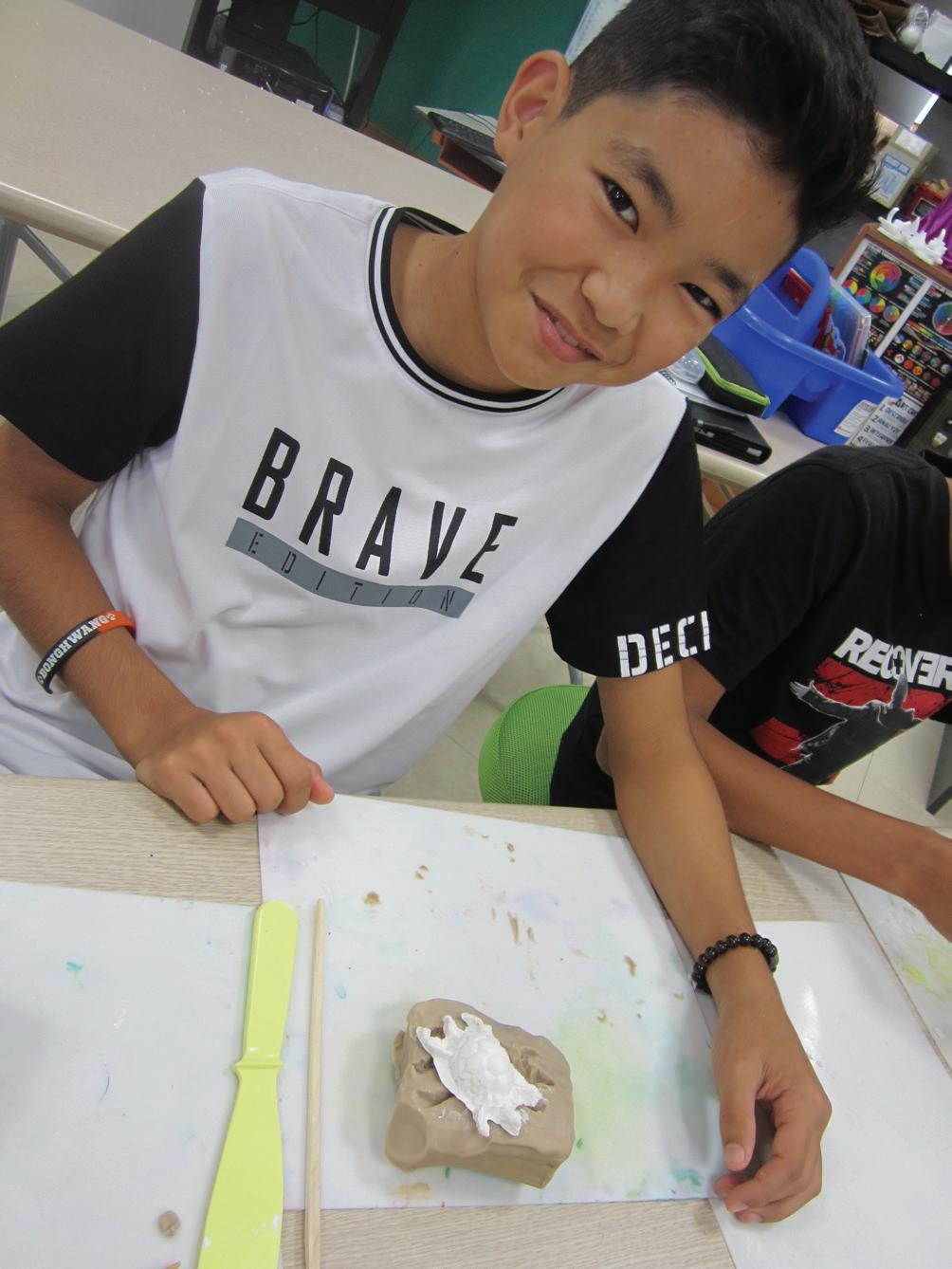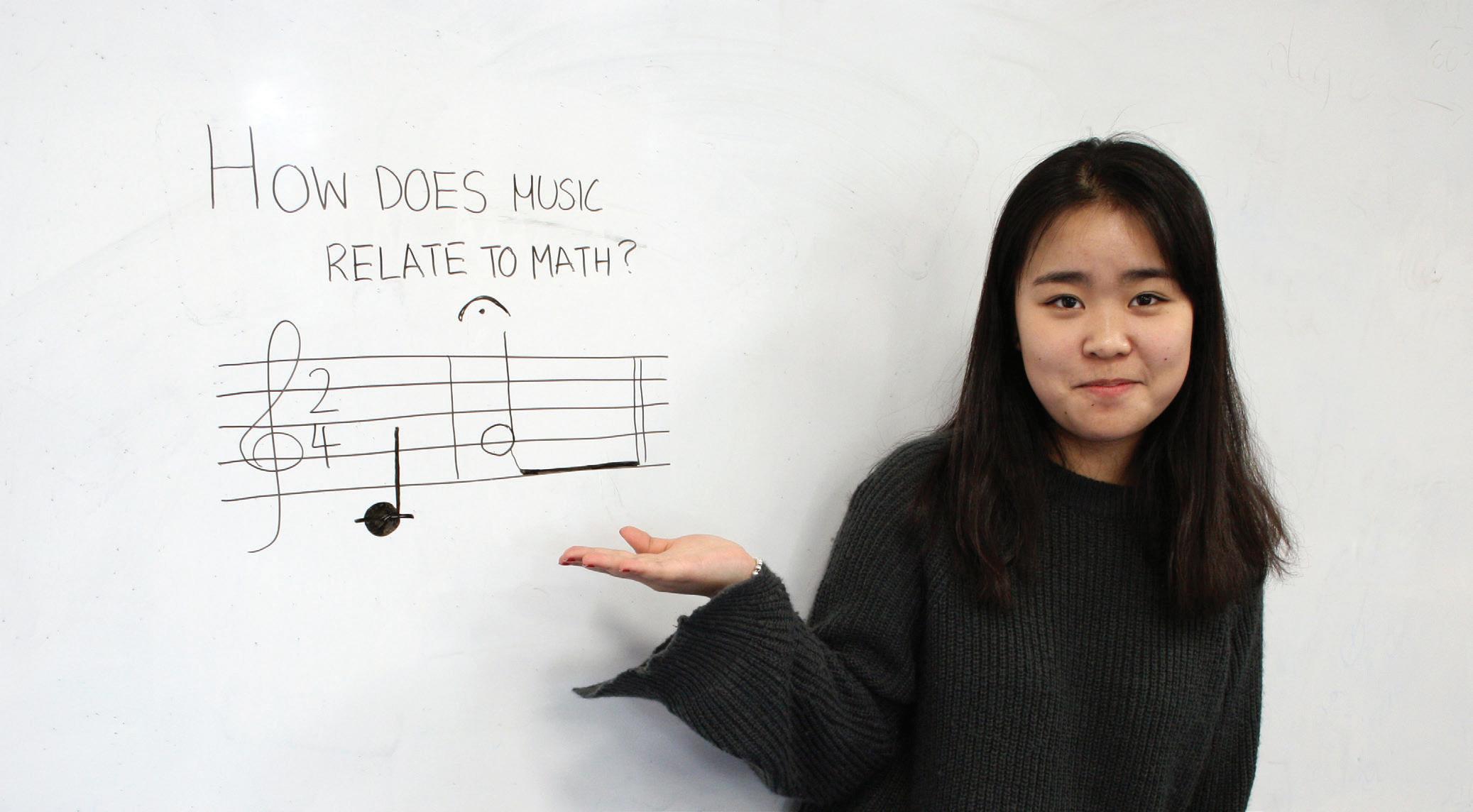
7 minute read
Striving to serve our island community, Daniel Slevin
Striving to serve our island community
Daniel Slevin writes from the International School of Koje
Korea’s second city, Busan, lies in the far South-East of Korea. Yet if you drive through a sea tunnel and over 2 suspension bridges to the island of Geoje you will find yourself in a far more international community. This is because Geoje island is the location of the world’s second and third largest shipyards, and serving them both is the International School of Koje (ISK) – spelled with the older Romanisation of the island’s name. Our school is made up of a diverse and ever-shifting community dependent on the projects in the shipyards, from North Sea oil rigs to naval submarines. As of April 2019 Texans, Indians and Kazakhs make up two of the largest groups among over 30 nationalities, whereas a few years ago it was Norwegians, Indians and Australians. As different projects are designed, built, and completed, so our community shifts in size. Over the past decade ISK has grown from fewer than 100 students to nearly 500, before now settling at around 150. This ‘accordion effect’ is due to oil prices, as when oil prices are high – as they were from 2006-2014 – the shipyard’s order books bustle.
As our smaller school grew, the Senior Leadership Team (SLT) were able to think afresh about how best to educate our diverse community with total freedom of curriculum choice. Fieldwork Education’s International Primary Curriculum (IPC) represented the values the school wanted to imbue in its staff and learners – those of challenge, expert teaching and a plethora of learning activities that would make the school a place where everybody would look forward to learning every day, whilst providing a framework for rigor and support. For our Middle Years, the IMYC (International Middle Years Curriculum) was selected because we recognized the value of a curriculum rooted in the body of neuroscience of the adolescent brain and specific to the three very formative years (ages 11-14). We have not looked back since, as the level of student engagement and enquiry is exceptional. We added the International Early Years Curriculum (IEYC) to our offering in 2017, a year after our first IPC accreditation and the same year in which we became the first school to be accredited for the IMYC. Next year sees us take on
the challenge of an IEYC-IPC-IMYC triple accreditation – a journey we are already deeply into as part of our professional development cycle.
Up until last year, ISK only taught students up to the Middle Years. This meant that any students on the island over 14 years of age would have to endure hours of travelling by bus to Busan or another city for their schooling. Some parents would not accept a job in Geoje at all for this reason; some families would only relocate the working parent while the other parent and the children remained at home; some parents with multiple children would wish them all to attend the same school and so would bus their brood each day; while some parents would not make full use of our Middle Years in the knowledge that sooner or later their teen would need to move. Sooner at least would enable relationships to be struck. When we considered the number of parents in these different categories, the potential total was significant.
We were clearly not serving our community in its entirety. It was time to grow. Last year we set about surveying how to build upon our Middle Years. We found that because of the reasons noted above, potential numbers were low, though we realized that for change to happen a plunge of commitment would be required from the school and the parents of our inaugural Years 10 and 11 classes. We researched and considered our curriculum options and decided upon the International General Certificate of Secondary Education (IGCSE) for Years 10 and 11. We were confident that we could adopt this two-year examinationbased course while maintaining the values of the IMYC and our school more widely. The appeal of ensuring students had a solid knowledge and skill base of subject-specific content, as well as the experience of managing their learning in readiness for exams that are not the be-all-and-end-all, would be of value to students as they approached their final years of schooling and, thereafter, university. For Years 12 and 13 we knew we had to grow steadily, so planned to open those classes over the following years – which also gave us time to research and consider accordingly.
One question we faced was whether the exam-based courses of IGCSE clashed with the philosophy of the IMYC. In our recruitment for this new secondary section of the school (now Middle Years and Higher Years) we have made it clear that we want teachers to teach the IMYC in either one or two subjects where possible, as well as one subject to IGCSE standard. This way our teachers are able to shape their Higher Years classes in such a way that enquiry and collaboration remain rooted. Students in our first Higher Years class talk about how they love the way that they learn at ISK compared to the approaches experienced in previous schools.
When recruiting secondary teachers, we did so with our school’s distributed leadership structure in mind. Our most experienced IMYC teacher leads this curriculum, while another experienced IGCSE teacher, who keeps our international mindedness flowing through the Higher Years by teaching Global Perspectives and History, leads the IGCSE. Two other teachers with keen energy were tasked with working with the SLT in researching the IB Diploma Programme and, simultaneously, what our own possible diploma might look like.
We quickly realised that, while the IB Diploma is an excellent fit for our school in many ways, our currently small secondary population and the amount of focus the triple accreditation is taking, mean that the time is not right for us – and may or may not be in the future. We looked at creating


our own diploma sealed by WASC (Western Association of Schools and Colleges), a local partner university and the Korean Ministry of Education, and after further consideration found that this would not be necessary. In opening our Higher Years we registered and were approved by Cambridge Assessment International Education and, as such, can offer IGCSEs and also A-levels for Years 12 and 13. One major benefit of A-levels compared to our own diploma is that they have immediate currency in universities around the world. Additionally, as a small school where we are hiring bi-disciplinarians to cover the Middle Years we have the flexibility to timetable our teachers so that those who can offer A-level subjects demanded by students can reduce their Middle Years teaching load.
Of course, academic qualifications are not everything. Middle Years students at our school take part in the William Pike Challenge Award for the entirety of each school year, whereby they pursue community service, a passion project and outdoor activities. Building upon this, we have become an Independent Award Centre for the Duke of Edinburgh’s International Award for our Higher Years, while the Middle Years will continue to take the William Pike Challenge Award as it is most suitable to their needs and experience of community and outdoor projects.
Unlike the Early Years, Primary Years and Middle Years which each have a curriculum of their own (the IEYC, IPC and IMYC respectively), the Higher Years will be in two distinct stages: IGCSEs for Y10-11 and predominantly A levels for Y12-13. Originally we decided to call Y12-13 Diploma Years but because in many school systems ‘High’ equates with the last years of pre-university schooling, we realised that Higher Years and Diploma Years would be easily muddled. We therefore decided to call all our Y10 upwards Higher

Years – although we will still be awarding our own diploma for school leavers.
The reason is thus: We treat each student individually and, with our transient and large EAL population, A-levels will not suit everyone. Depending on the combination of A-levels studied, students may be eligible for the award of the Cambridge AICE (Advanced International Certificate of Education) diploma, though we will encourage students to select their A-levels based on their passions and future career plans. A-levels in Maths, Biology and Chemistry, for instance, would be more useful for an aspiring physician than the broader balance of subjects demanded for an AICE. In conjunction with parents and students, we will ensure each student has a package of IGCSEs, AS and/or A-levels that suits them which, along with their William Pike and/or Duke of Edinburgh’s International Awards, will be recorded on an ISK diploma. A school diploma is a celebration of learning that will be of use especially for students from countries that make use of diplomas. What is more, school diplomas will serve as a focal piece for the celebration of students’ learning, as well as for our school in finally truly serving our community.










